Squeezing in sleep: student athletes strive for the prized 8 hours
Sophomore Austin Schmidt eats a cold Eggo waffle in the boys locker room before school starts. During the first week of school, Schmidt adapted to eating breakfast in the locker room.
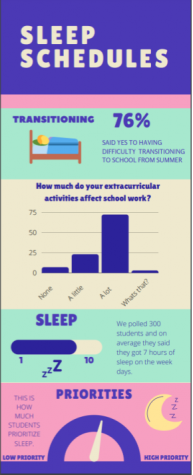 Fighting the eyelids
Fighting the eyelids
A varsity athlete sits in the boys locker room eating a cold Eggo waffle. He smells of sweat and exhaustion, a potent aroma that tingles the insides of his nose.
Sophomore Austin Schmidt runs on the varsity cross country team. He crushes both the race competition and the competition for the least amount of sleep. Austin gets an average of six hours of sleep daily, but runs 5 minute miles in the morning.
“I get on average, Monday through Thursday, probably five and a half hours of sleep between having to wake up for practice, school, my job, and homework,” Schmidt said. “I’d say the hardest part is how early you have to wake up every day.”
Schmidt has been training all summer for the art of waking up early. Over the summer he worked at Westbury Baptist, arising at the brink of dawn. Work started at 8:30 a.m. and ended at 4:30 p.m., which enabled him to get used to the long days.
“The transition from summer to school wasn’t as hard because I had a job all summer which kept me on a schedule,” Schmidt said.
By 5:00 a.m. Schmidt is running his daily laps at practice. His routine consists of waking up at 4:15 a.m. to get ready for cross country practice and breakfast in the locker room. School then ends at 4:10 p.m., when he can finally go home to rest. At least until he begins his multi-hour long homework load. Finally ending the day, he drools on his keyboard.
“My breakfast normally consists of a waffle, easy to eat, easy to transport, and tastes great,” Schmidt said. “Like a fluffy and circular energy bar.”
Austin has minimal sleep, lots of exertion, and a below average breakfast. This takes a toll on his body, where Austin, on multiple occasions, has slept in his classes.
“I typically have two hours of homework every day and doing it ends up being a struggle,” Schmidt said. “At the end of the 12-hour days I have no energy left.”
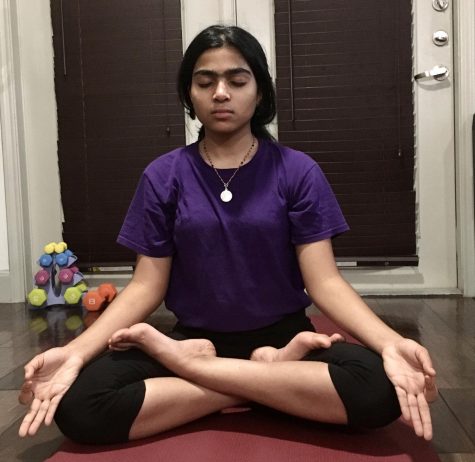
Freshman Night Owl
Walking through the crowded halls, everyone towering over her, half of faces seen, voices are deeper, she is trying to find someone she recognizes. She tries to remember people’s faces, but everything is so different.
It’s already scary to start a new school because everything is new, but what makes it more horrifying is that she spent the last year of life in a virtual reality. Her friends from 8th grade would be the support group during this transition, but after virtual school, all of her friends turned to blank screens, profile pictures, or initials.
The only thing left reminiscing from middle school are the voices of her friends. Should I say hi? Is that who I think it is? Do they remember me?
These are the questions that raced through freshman Prakrati Shenoy’s mind on her first day at Bellaire High School.
“Transitioning from Lanier Middle School to Bellaire was challenging,” Shenoy said. “Everything was so different, especially the classes and homework, but I am starting to get the hang of things.”
After moving from an online block schedule to seven classes a day in person, the days start to shorten. Trying to adjust to a new school environment and more homework has been getting easier for Shenoy, but her sleep schedule may present a challenge.
“The transition wasn’t too hard after a while because I focused and tried to do all my work in the few hours I had,” Shenoy said. “I mean, Lanier and Bellaire aren’t too different because I still eat the same lunches I got in middle school and elementary.”
On top of her academic commitments in advanced classes, Shenoy must find time for her Belles dance practices, morning yoga, afternoon exercise, learning two languages, singing class, Sunday school and socializing with friends. These activities enrich her life with different experiences and skills, but with just 24 hours in a day, it gets hard to keep up with everything and get enough sleep.
“I get frustrated especially when I have other classes and can’t get to do everything my parents pay for without wasting their money, along with finding my friends and relaxation time,” Shenoy said. “I remember when I would go to sleep around 8, but as I got older, it became 8:30 to 9, to 9:30 to 10, and now it’s 10:30 to 11 while waking up at 6.”
With the day-to-day stress as a teenager and new highschooler, the lack of sleep takes a toll on her body.
“Sometimes when I’m doing homework, I just start falling asleep just looking at the paper, but I just try to stay up so I can at least turn it in on the Hub,” Shenoy said. “I think I get enough sleep because my body is used to it and I don’t usually feel tired, but when I am, I usually just tell myself it’s just a few more hours, you can do it and go on with life.”
Rather than sitting there doing nothing, or rather sitting there about to fall asleep, Shenoy tries many strategies to balance sleep and work.
“I try not to procrastinate even though it is not easy,” Shenoy said. “I try a reward system with watching TV with my family, the pomodoro method, apps like Calm, Harry Potter Peaceful Ambience on Youtube, fast yoga to wake me up, and really just planning things out and taking breaks.”
With all these challenges faced as a freshman, Shenoy wants to share a word of advice to her fellow night owls.
“Even if you’re a night owl, know your limits,” Shenoy said. “Prioritize your time but also look out for your body and keep a healthy sleep schedule.
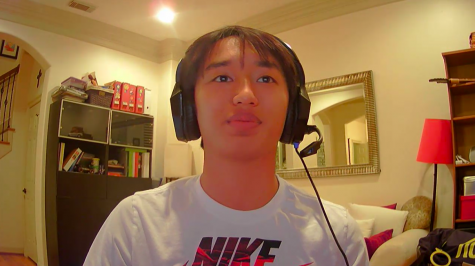
A senior year sleep schedule turnaround
When his alarm begins to blare at 6 a.m., senior Matthew Soenjoto bursts out of bed before his dad has the chance to angrily barge into his room. Despite not being a morning person, his father’s irregular wake-up calls over the past three years have warped Soenjoto into an adaptable early riser.
By 7 a.m., Soenjoto is swimming his daily laps at practice, where the cold water eradicates any leftover sleepiness. After an hour, he downs a packet of energy refreshers and heads off to school, proud of the morning routine he’s taken years to perfect.
Merely a year ago, Soenjoto struggled to even wake up in time for classes. Virtual school, a declining interest in classes and an abundance of gaming friend groups led Soenjoto to place sleep on the bottom of his list of priorities.
“It was so bad,” Soenjoto said. “On a good day I would get six hours of sleep, because I would stay up playing games like Valorant, Call of Duty and League of Legends. In the morning I’d have my classes, but then I’d fall asleep again because I didn’t get sleep the night before, but then I had to rush on my homework, so I’d stay up all night.”
In an effort to prevent the debacle of last year’s sleep schedule, Soenjoto took extra measures for senior year to adjust for earlier wake-up times. Arriving home from vacation only two days before the first day of school, Soenjoto implemented a strict routine to overcome jet lag.
“I promised myself that I have to start training my body,” Soenjoto said. “I worked out during the day and then at night, took a little nap, and woke up around 7 p.m. Then I would wake up again and sleep pretty late, and that’s how I adjusted. So when school started I kind of eased into the early mornings and wasn’t slammed with it.”
His efforts paid off, and Soenjoto now maintains one of his most healthy sleep schedules to date. With bedtimes around 10 p.m. and workouts in the morning, Soenjoto feels at his prime, noticing a better attention span and more energy.
“So far I think I’ve been getting enough sleep, but I feel like as the year gets harder and everything and we get more homework, and I stress about more things, I probably won’t get as much sleep, but we’ll see how it goes,” Soenjoto said.
Due to experiencing negative feelings in both his mind and body, Soenjoto began reading a lot into mental health during the summer. After his research, he’s made getting enough sleep a bigger priority.
“I used to not think sleep was important because my mom is like amazing, and she gets like zero hours of sleep every day. I don’t know how she goes through everything like that, but that’s why I thought sleep wasn’t a big issue, but now I think it’s pretty important,” Soenjoto said.
Despite his progress, Soenjoto aims to rid a few more things that impact his circadian rhythm, like napping after school and staying up on his phone at night.
“I know going on your phone before bed is not good for you, but I have the automatic night mode thing on at least,” Soenjoto said.
Soenjoto says that while he won’t openly stress about things, his body will manifest reactions through his body, causing him to have a harder time falling asleep. He hopes the healthy sleep schedule he’s set for senior year will work to combat the stress on his body from schoolwork, rigorous swim practices and college applications.
“It’s the beginning of the year, but we’ll see how it goes.”
Your donation will support the student journalists of Bellaire High School. Your contribution will allow us to purchase equipment and cover our annual website hosting costs.


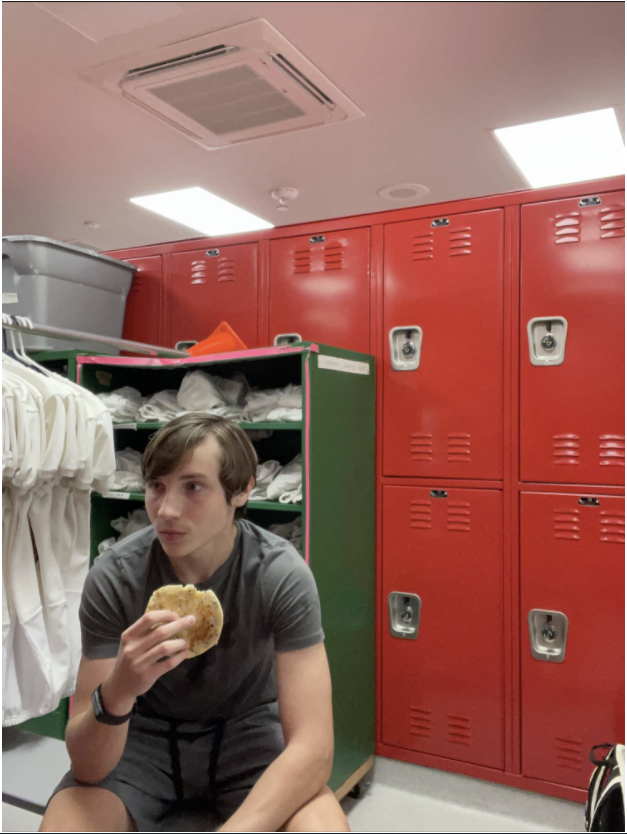
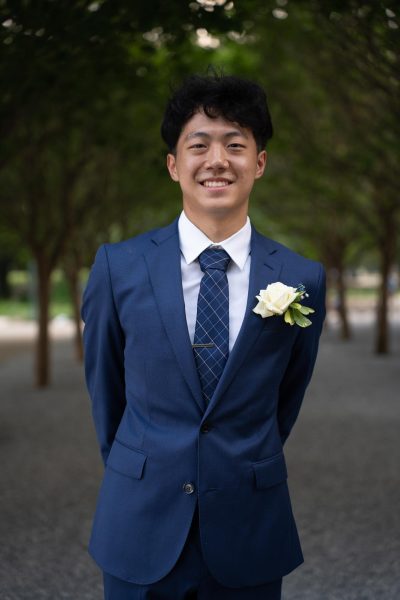
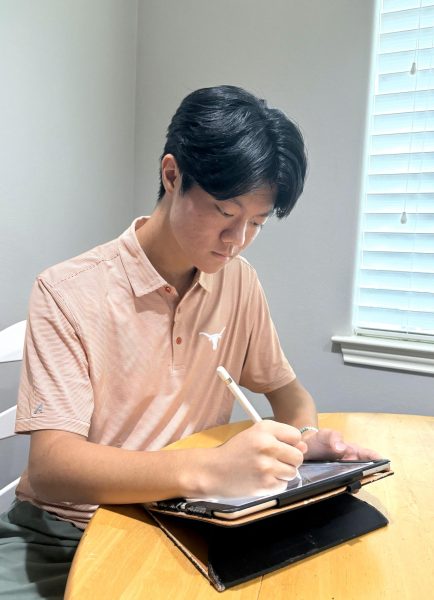
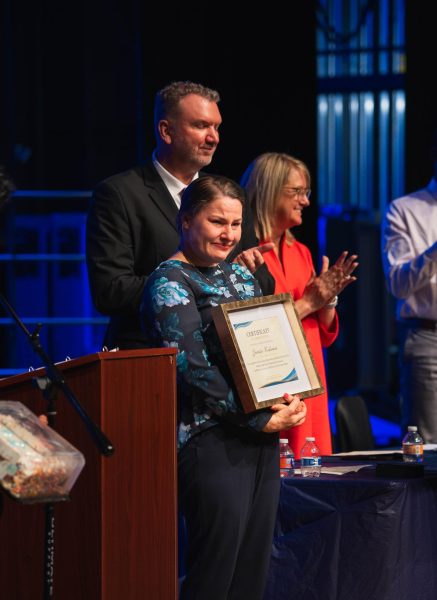
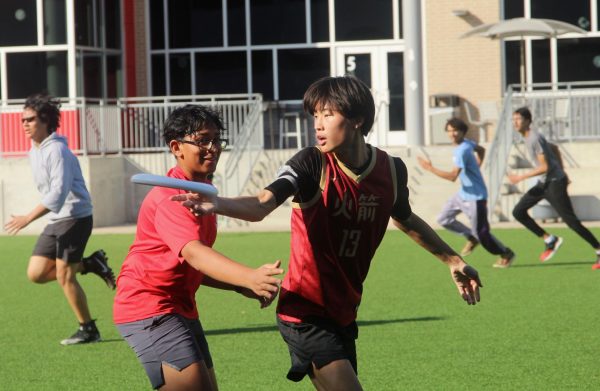

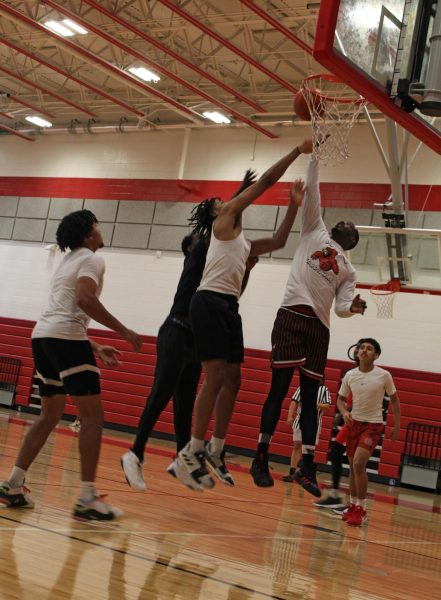

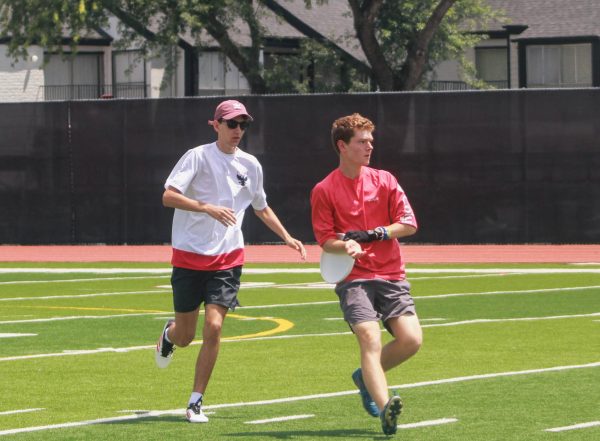


Jatin Presse • Dec 8, 2021 at 12:22 pm
I feel this article. Having so much homework and activities to juggle, getting in the proper 8 hours of sleep is challenging. I really relate to what the other students wrote, and hearing other people have similar struggles helps me to feel more reassured. I appreciated the different perspectives this article has to offer. Hearing the people that I related to, with their lack of sleep, makes me feel better, and the people that did get a lot of sleep helped to motivate me to prioritize my sleep better.